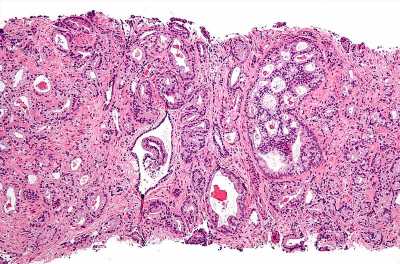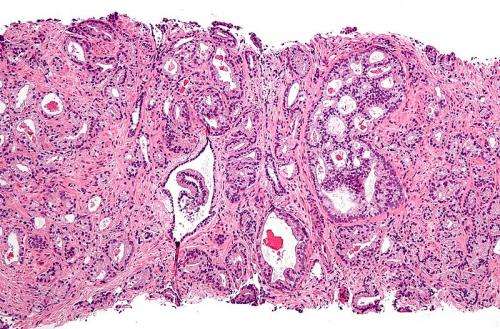Potential new drug targets may enhance the treatment of prostate cancer

The doctoral thesis of A. B. M. Kaiser Manjur, M.Sc., at the Faculty of Health Sciences, provides novel insights into two medically important transcription factors (TFs), glucocorticoid receptor (GR) and androgen receptor (AR)—in particular, their functional interactions with two coregulator proteins, IRF2BP2 (Interferon regulatory factor 2 binding protein 2) and BCOR (B-cell lymphoma 6 corepressor). State-of-the-art genome-wide methods were utilized to define the role of these coregulators in modulating GR and AR target gene expression. Importantly, the findings of this thesis revealed target gene-dependent role of coregulators in GR and AR signaling and provided insights for designing and developing new drugs to treat inflammatory diseases and prostate cancer.
GR and AR are evolutionarily closely related TFs. The GR is present in nearly every human cell and mediates the actions of glucocorticoids to regulate tissue-specific gene expression with widespread physiological impacts. Synthetic GCs are among the most widely prescribed drugs to treat inflammatory diseases and are also widely used for hematological cancers. However, the therapeutic benefits of GCs are often hindered by severe side effects due to their long term and chronic use. The AR, on the other hand, mediates the action of androgens for normal development and maintenance of male sexual characteristics. Defective AR signaling is responsible for a wide range of androgen insensitivity disorders and involved in the development and progression of prostate cancer. Current therapies for advanced prostate cancer include inhibition of AR and androgen signaling by blocking androgen production and/or androgen binding to the AR. However, despite these therapies prostate cancer often progresses to a lethal castration-resistant form (CRPC) where androgen signaling pathway is persistently activated. In addition to the AR, coregulators and GR may contribute to the development of CRPC. Thus, new strategies are warranted to improve the AR- and GR-targeted therapies.
Both the AR and the GR regulate their target gene expression by interacting with DNA and coregulators. Coregulators are proteins recruited to specific genomic regulatory regions by a TF to enhance or inhibit the rate of its target gene transcription. Coregulators play a pivotal role in the correct regulation of target gene expression during GR and AR signaling and they are thus emerging as potential new drug targets.
Source: Read Full Article
